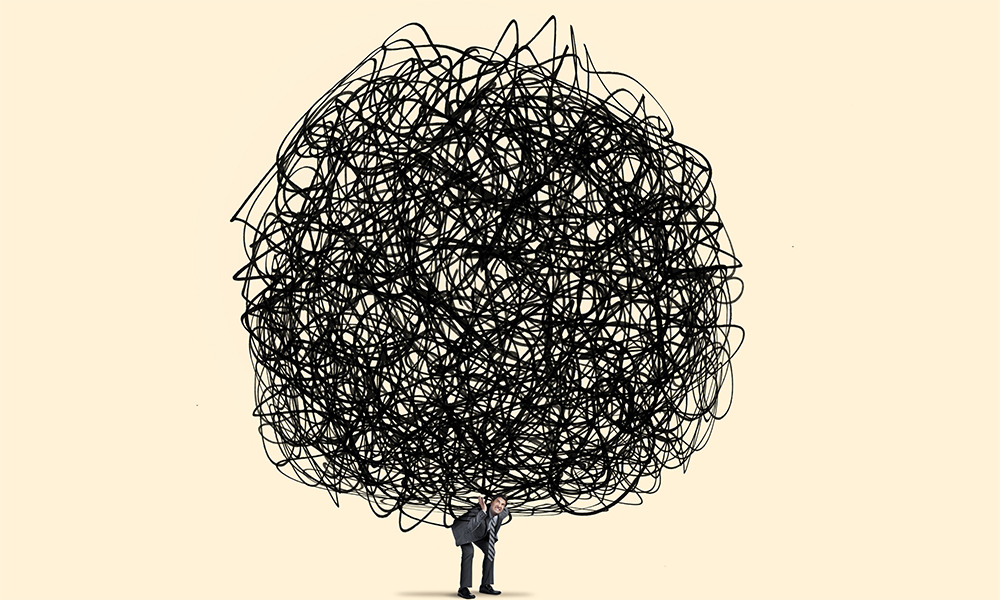I was recently speaking to someone who had just been settling into her first job. She was excited and working hard to start strong in her company. Unfortunately, she recently learnt that her company needed to cut costs and she was going to lose her job. She was devastated.
Missing out on a promotion, not getting a plum assignment, getting a bad performance review, or getting laid off? Imagine entering the workforce with high hopes, only to encounter something that derails your career. It’s a scenario many young professionals face, but what if within these challenges lies the seed of your future success?
A few years ago, researchers at the Kellogg School of Management established a clear causal relationship between early-career setbacks and future success:
Despite an early setback, individuals with near misses systematically outperform those with narrow wins in the longer run…suggesting early-career setback appears to cause a performance improvement among those who persevere.
When looking at a ten-year horizon, the near-misses were seen to have more successful and impactful careers than the near-wins. In other words, grappling with failure in the early part of your career can set you up for long-term victory, giving you an advantage over peers who never stumbled.
These results were counterintuitive, surprising even the researchers themselves! As Dr Dashun Wang, a co-author on the study, notes:
When we first saw these results, we were like, ‘Oh, that can’t be right, this is counter to everything we’ve learned.’ We just tested everything we could think of, but every time we tested, the results came back the same.
As it turned out, those early setbacks drove crucial performance improvement among the subjects. Those who seized the learning opportunity offered by failure were able to become, as Wang puts it, “better versions of themselves”.
So, this week, my message focuses on the positive potential of early-career setbacks. How can you harness these disappointments to come back stronger and succeed decisively in the future?
Dwelling on how and why you missed the mark can be an uncomfortable, somewhat depressing exercise. Why not just pick up and move on, right? Doing that is certainly easier, but it will cause you to miss out on the potentially career-changing lessons that may be hiding under your setback.
In recent times, the value of failure as a pathway to growth and success has entered the mainstream conversation. You have probably heard about concepts like “failing well” and “intelligent failure”.
We have even seen the rise of the “failure resume” or “anti-portfolio”, in which people document career rejections, mistakes and missed opportunities — along with the lessons gleaned from them.
Melanie Stefan, a lecturer at the Edinburgh Medical School, even went so far as to share her failure resume online, which led to many other successful folks doing the same. Their goal? To take the stigma out of failure and highlight the many stumbles that come before success. It’s not enough to “try and try again” but rather “try, try, try again — and then try and try some more”!
Taking early setbacks in your stride and being able to grow from them can make all the difference to the way your career unfolds in later years. As an article the New York Times observes:
Falling on our face gives us the rare opportunity to find and address the things that went wrong (or, even more broadly, the traits or habits that led us to fail), and it’s an opportunity we should welcome.
How to rebound from setbacks
Here are six suggestions to transform an early-career hiccup into a springboard for success:
1. Feel your feelings, then accept reality.
For young people, especially high achievers who’ve sailed smoothly through school, college and recruitment, professional adversities can come as a huge shock. Whether you’ve missed out on a promotion you thought you had in the bag or been laid off unexpectedly, you will have to face some tough emotions — anger, resentment, denial, humiliation, sadness. It’s important to process these feelings in a timely and effective way, so you can accept the reality and begin moving forward.
2. Don’t get mired in blame and pity.
When a career setback occurs, we tend to blame everyone else in the situation except ourselves. A piece in the Harvard Business Review explains this phenomenon:
As social psychologists have found in decades’ worth of studies, high achievers usually take too much credit for their successes and assign too much external blame for their failures. It’s a type of attribution bias that protects self- esteem but also prevents learning and growth. People focus on situational factors or company politics instead of examining their own role in the problem.
When all your focus is turned outwards, self-improvement becomes impossible. You waste precious time feeling wronged and reinforcing self-pity with the sympathy of family and friends. As a result, the personal failings that may have caused the setback go unnoticed and unaddressed, remaining free to wreak havoc again in the future. To enable your own growth, it’s vital to move past this stage as quickly as possible.
3. Figure out what went wrong.
Once you’ve accepted that you might have played a role in the setback, it’s time to get into the nitty-gritty. Investigate the events in detail, as dispassionately as possible. What went wrong? How do you think you might have contributed to it? Did you assess the situation correctly? Did you respond appropriately? If you could go back, what would you change? And how might you do things differently in the future? Take a long hard look at who you are — and who you want to be.
Getting candid feedback from colleagues can be extremely helpful. Get inputs from your boss, team members and direct reports. You can do this even if you’ve left the organization: former co-workers will likely be happy to offer feedback if you make it clear that your goal is to learn from your mistakes.
4. Address your career-limiting behaviour.
Now that you understand what’s holding you back, it’s time to work on it. The HBR article mentioned above gives the example of Brian, a rising star in charge of a key business unit, who was abruptly dismissed despite delivering outstanding results. After coping with the initial shock, Brian dug into the decision and discovered three things that had led to his ouster: an aggressive management style, an inability to manage strong emotions, and a failure to inspire loyalty among team members.
Taking the feedback to heart, Brian went on to take a lower-level position at a different organization, which allowed him to experiment with his leadership style and develop better control over his emotions. Three years down the line, he was hired as the CEO of a Fortune 500 company.
Remember, growth looks different for different people. It could involve coaching, training, therapy or a series of self-guided improvements. Keep an open mind as you work to regain your footing and bounce back from defeat.
5. Explore new avenues.
The derailment of your career trajectory can leave you reeling, unable to see what success might look like in the future. To break out of this limbo state, you need to actively seek out and engage with fresh options — be it a different role within your existing company, a move to another organization, or a foray into a new line of work or industry. The most important thing is to carry your recent lessons with you.
At the end of the day, you may just decide to stay on where you are, taking the opportunity to shift your mindset and evolve into a better version of yourself. This is a valid choice, but don’t let it be your default course of action. Make the effort to see what else might be out there for you!
6. Don’t define yourself by the setback.
While it’s good to assess and learn from early failures, it’s equally important not to weave your identity around them. Understand that even the most successful people you know have made serious mistakes and faced defeat along the way — just because they don’t talk about it doesn’t mean it didn’t happen. As you move forward, don’t keep chastising and criticizing yourself. Take the lessons, leave the judgment.
A setback in the early stages of your career can knock the wind out of your sails. Fortunately, responding to failure in the right way can actually set you up for greater success in the future. Errors can make you stronger by fuelling career-changing learning, growth and reinvention. So, if you’ve recently faced a bump in the road, this is your wake-up call to stop wallowing. It’s time to get down to work and turn the loss into a win.








Comments